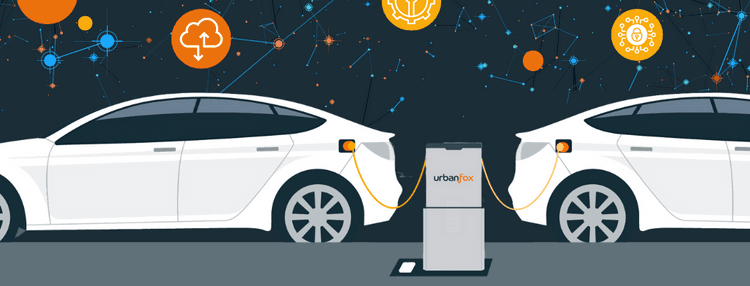The future role of AI in optimising EV charging networks

In the ever-evolving landscape of EV technology, one aspect is increasingly standing out as a crucial driver of efficiency and sustainability: artificial intelligence (AI).
As the demand for EV charging infrastructure continues to surge, the integration of AI holds immense potential to improve how we manage and optimise EV charging networks.
In this blog post, we’ll explore the pivotal role that AI could play in transforming EV charging networks into smarter, more efficient systems that work for the whole community.
Understanding the challenge
The increase of EVs presents both opportunities and challenges for CPOs. One of the primary challenges is the need to effectively deploy charging networks to catch up with current demand, then deploy charging infrastructure just ahead of future demand, whilst managing and optimising the network, and minimising costs and streetscape impact.
Traditional approaches to network management often struggle to adapt to dynamic factors such as fluctuating electricity prices, grid congestion, and user behaviour patterns – enter artificial intelligence.
Leveraging AI for optimisation
At Urban Fox, our data analysis team uses in-house forecasting tools and Geographical Information Systems (GIS), harnessing over 50 data sets. By also harnessing the power of AI algorithms and data analytics, we can accurately pinpoint site locations with the highest demand for chargers, optimising the progressive development of EV charging networks.
AI enables predictive modelling and optimisation techniques that allows us to gain valuable insights and make data-driven decisions in real-time.
Anticipating demand and adapting to change
As AI algorithms can analyse vast amounts of historical data, including traffic patterns, user behaviour, and weather forecasts, in the very near future, this could be used to predict future demand for EV charging. By accurately forecasting demand, network operators could proactively allocate resources, optimise charging station utilisation, and minimise waiting times for users.
In a dynamic environment, such as a city with fluctuating electricity prices or unexpected traffic congestion, AI-driven optimisation algorithms could quickly adapt charging schedules to minimise costs and maximise efficiency. Real-time data integration could allow charging networks to respond rapidly to changing conditions, ensuring optimal performance at all times.
The future of personalised charging solutions
We could soon be seeing AI-powered charging networks offering personalised charging solutions tailored to individual user preferences and needs. Machine learning algorithms could analyse user data, such as charging habits, driving patterns, and vehicle specifications, and could recommend optimal charging times, locations, and pricing plans. This user-centric approach will enhance the overall charging experience and could encourage greater adoption of EVs.
Beyond optimising individual charging sessions, AI could play a crucial role in promoting sustainability and scalability in EV charging networks. By optimising energy use, reducing grid congestion, and integrating renewable energy sources, AI-driven networks could contribute to the transition to a low-carbon transport system.
Conclusion
As the demand for EVs continues to rise, the optimisation of EV charging networks becomes increasingly vital. AI is emerging as a transformative force in this endeavour, and will enable CPOs to maximise efficiency, sustainability, and user satisfaction. By leveraging AI-driven solutions, we could unlock the full potential of electric mobility and pave the way towards a cleaner, greener future.
Want to find out more about our smart, sustainable EV charging networks? Get in touch with our expert sales team now.
Want to find out more? Let’s talk.
We help local authorities rollout EV charging infrastructure for a cleaner, greener future.